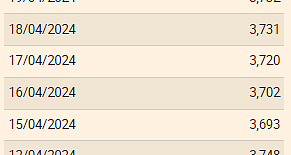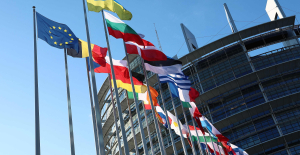The INCREASE of new cases in the last three years, reported the center of attention in a disease that in the common perception seemed to almost disappeared. Instead, it continues to strike and to worry about. They are five in a month's time, the cases of meningococcal serogroup C reported in the Province of Bergamo, between December 2019 and early 2020. To make the point is the Istituto superiore di sanità (Iss), which is part of the task force activated by the ministry of Health to respond to the outbreak of lombardy. In addition to the Iss and the ministry, are in the task force the Agenas, the State-Regions Conference and the local health authorities and regional authorities. "All the cases occurred in the same geographical area within the span of a month - underlines the Iss - but because the health authorities are intervening in so rapid and massive, the outbreak may be limited thus preventing an outbreak on a large scale". Clinics open on weekends, The experts remind us of the importance of the vaccine. To cope with the vaccination campaign in the province of Bergamo, the clinics will be open on the week-end. "We must, however, be stressed that as the vaccine begins to be effective after 15-20 days from its administration, it may cause new cases until the vaccination of the local population can begin to give its effects continues, the Iss - it Is also important to consider that in the case of the meningococcal vaccination is particularly indicated as a form of prevention because in the case of infection, the time between the onset of symptoms and the development of the disease, are very fast".
pathology meningitis, it reads on the board of the national Institute of Health, is an inflammation of the membranes (meninges) that surround the brain and spinal cord. The disease is generally of infectious origin, and can be viral, bacterial or caused by fungus. The viral form, also called aseptic meningitis, is the most common: usually not serious and resolves within 7-10 days. Bacterial form is rare in The bacterial form, that returned to strike in the past months, more rare but extremely serious , and can have fatal consequences. The Neisseria meningitidis (meningococcus) is lodged in the upper respiratory tract (nose and throat), often of healthy carriers and asymptomatic (2-30% of the population). It was first identified in 1887, although the disease was already described in 1805 during an outbreak in Geneva. It is transmitted from person to person via respiratory secretions. The meningococcus is a bacterium that is affected by temperature changes and drying. Therefore, outside the organism survives only for a few minutes. The infection The main cause of contagion is represented by healthy carriers of the bacterium : only in 0.5% of cases, the disease is transmitted by people suffering from the disease. There are 13 different serogroups of meningococcus, but only six cause meningitis and other serious diseases: the more frequently A, B, C, Y and W135, and much more rarely in Africa, X. In Italy and in Europe, serogroups B and C are the most frequent. The symptoms are not different from those of other meningitis bacterial, but in 10-20% of cases the disease is rapid and acute, with a fulminant course that may lead to death in a few hours even in the presence of an adequate therapy. The sick of meningitis or other serious forms are considered to be contagious for about 24 hours after start of antibiotic therapy specific. The infectivity is still low, and the secondary cases are rare. The outbreaks of The use , however, can give rise to outbreaks . To limit the risk of secondary cases, it is important that close contacts of the ill to perform a prophylactic antibiotics . In the evaluation of close contact (which must be made on a case-by-case) are taken into account: the partners considering the environment of study (the same class) or work (the same room); he who has slept or eaten, often in the same house of the sick; the people that in the seven days prior to the onset had contact with its saliva (through kissing, dishes, toothbrushes, toys); the health that have been directly exposed to respiratory secretions of the patient (for example, during the maneuvers of intubation or mouth-to-mouth).
The symptoms for The surveillance of the contacts is important to identify those who were to present fever , in order to diagnose and treat quickly any more cases. This monitoring is scheduled for 10 days after the onset of symptoms of the patient. The incubation period is generally 3-4 days (from 2 up to 10 days). In addition, we must consider that the meningococcus can cause a septicaemia meningococcal (a clinical picture, sometimes very severe, for the presence of the meningococcus in the blood, with high fever, hypotension, petechiae, failure on the part of one or more organs up to a fatal outcome) that can stand alone or coexist with the clinical manifestations of meningitis. The symptoms of meningitis are independent of the germ that causes the disease. The most typical symptoms include < / strong> :stiffening of the rear part of the neck (nuchal rigidity); high fever; headache; vomiting or nausea; alteration of level of consciousness; seizures. The identification of the causative organism is carried out on a sample of cerebrospinal fluid or blood. In newborns, it "hides" In infants, some of these symptoms are not evident. You can, however, manifest fever, seizure (convulsions), a continuous crying, irritability, drowsiness and poor appetite. On the front of the fight to the meningococcus, are currently available vaccines polysaccharide against serogroups A, C, Y and W-135, however, provide a short-term protection only to those of age greater than 2 years of age, the conjugate vaccine against serogroup C (currently used in the calendars vaccination in Italy) and the conjugate vaccine against serogroups A, C, Y and W-135. And' some years ago the introduction (2014) and in the market in offering the vaccine in some regions a vaccine to prevent invasive forms meningococcal serogroup B.
pathology meningitis, it reads on the board of the national Institute of Health, is an inflammation of the membranes (meninges) that surround the brain and spinal cord. The disease is generally of infectious origin, and can be viral, bacterial or caused by fungus. The viral form, also called aseptic meningitis, is the most common: usually not serious and resolves within 7-10 days. Bacterial form is rare in The bacterial form, that returned to strike in the past months, more rare but extremely serious , and can have fatal consequences. The Neisseria meningitidis (meningococcus) is lodged in the upper respiratory tract (nose and throat), often of healthy carriers and asymptomatic (2-30% of the population). It was first identified in 1887, although the disease was already described in 1805 during an outbreak in Geneva. It is transmitted from person to person via respiratory secretions. The meningococcus is a bacterium that is affected by temperature changes and drying. Therefore, outside the organism survives only for a few minutes. The infection The main cause of contagion is represented by healthy carriers of the bacterium : only in 0.5% of cases, the disease is transmitted by people suffering from the disease. There are 13 different serogroups of meningococcus, but only six cause meningitis and other serious diseases: the more frequently A, B, C, Y and W135, and much more rarely in Africa, X. In Italy and in Europe, serogroups B and C are the most frequent. The symptoms are not different from those of other meningitis bacterial, but in 10-20% of cases the disease is rapid and acute, with a fulminant course that may lead to death in a few hours even in the presence of an adequate therapy. The sick of meningitis or other serious forms are considered to be contagious for about 24 hours after start of antibiotic therapy specific. The infectivity is still low, and the secondary cases are rare. The outbreaks of The use , however, can give rise to outbreaks . To limit the risk of secondary cases, it is important that close contacts of the ill to perform a prophylactic antibiotics . In the evaluation of close contact (which must be made on a case-by-case) are taken into account: the partners considering the environment of study (the same class) or work (the same room); he who has slept or eaten, often in the same house of the sick; the people that in the seven days prior to the onset had contact with its saliva (through kissing, dishes, toothbrushes, toys); the health that have been directly exposed to respiratory secretions of the patient (for example, during the maneuvers of intubation or mouth-to-mouth).
The symptoms for The surveillance of the contacts is important to identify those who were to present fever , in order to diagnose and treat quickly any more cases. This monitoring is scheduled for 10 days after the onset of symptoms of the patient. The incubation period is generally 3-4 days (from 2 up to 10 days). In addition, we must consider that the meningococcus can cause a septicaemia meningococcal (a clinical picture, sometimes very severe, for the presence of the meningococcus in the blood, with high fever, hypotension, petechiae, failure on the part of one or more organs up to a fatal outcome) that can stand alone or coexist with the clinical manifestations of meningitis. The symptoms of meningitis are independent of the germ that causes the disease. The most typical symptoms include < / strong> :stiffening of the rear part of the neck (nuchal rigidity); high fever; headache; vomiting or nausea; alteration of level of consciousness; seizures. The identification of the causative organism is carried out on a sample of cerebrospinal fluid or blood. In newborns, it "hides" In infants, some of these symptoms are not evident. You can, however, manifest fever, seizure (convulsions), a continuous crying, irritability, drowsiness and poor appetite. On the front of the fight to the meningococcus, are currently available vaccines polysaccharide against serogroups A, C, Y and W-135, however, provide a short-term protection only to those of age greater than 2 years of age, the conjugate vaccine against serogroup C (currently used in the calendars vaccination in Italy) and the conjugate vaccine against serogroups A, C, Y and W-135. And' some years ago the introduction (2014) and in the market in offering the vaccine in some regions a vaccine to prevent invasive forms meningococcal serogroup B.
"The Republic will fight always in defense of the freedom of information, to its readers and to all those who have at heart the principles of democracy and civil coexistence"
Carlo Verdelli SUBSCRIBERS TO REPUBLIC © Reproduction reserved Today on Parma, the Ohio of Emilia, anticipating who wins the split between the League and sardines Reforms, it is chaos on the signatures of the parliamentarians for the referendum on the cut of the seats in Government, here's the “heads”and guided by the Carfagna. Clash with Salvini on the remains of the Forza Italia the Other two byes in the M5. Revolt against Rousseau. “It is a foreign body Government, the M5S is open to changes on the prescription. Early in the Cdm reform processthe Republic

 The Euribor today remains at 3.734%
The Euribor today remains at 3.734% Germany: the trial of an AfD leader, accused of chanting a Nazi slogan, resumes this Tuesday
Germany: the trial of an AfD leader, accused of chanting a Nazi slogan, resumes this Tuesday New York: at Columbia University, the anti-Semitic drift of pro-Palestinian demonstrations
New York: at Columbia University, the anti-Semitic drift of pro-Palestinian demonstrations What is Akila, the mission in which the Charles de Gaulle is participating under NATO command?
What is Akila, the mission in which the Charles de Gaulle is participating under NATO command? What High Blood Pressure Does to Your Body (And Why It Should Be Treated)
What High Blood Pressure Does to Your Body (And Why It Should Be Treated) Vaccination in France has progressed in 2023, rejoices Public Health France
Vaccination in France has progressed in 2023, rejoices Public Health France Food additives suspected of promoting cardiovascular diseases
Food additives suspected of promoting cardiovascular diseases “Even morphine doesn’t work”: Léane, 17, victim of the adverse effects of an antibiotic
“Even morphine doesn’t work”: Léane, 17, victim of the adverse effects of an antibiotic MEPs validate reform of EU budgetary rules
MEPs validate reform of EU budgetary rules “Public Transport Paris 2024”, the application for Olympic Games spectators, is available
“Public Transport Paris 2024”, the application for Olympic Games spectators, is available Spotify goes green in the first quarter and sees its number of paying subscribers increase
Spotify goes green in the first quarter and sees its number of paying subscribers increase Xavier Niel finalizes the sale of his shares in the Le Monde group to an independent fund
Xavier Niel finalizes the sale of his shares in the Le Monde group to an independent fund Owner of Blondie and Shakira catalogs in favor of $1.5 billion offer
Owner of Blondie and Shakira catalogs in favor of $1.5 billion offer Cher et Ozzy Osbourne rejoignent le Rock and Roll Hall of Fame
Cher et Ozzy Osbourne rejoignent le Rock and Roll Hall of Fame Three months before the Olympic Games, festivals and concert halls fear paying the price
Three months before the Olympic Games, festivals and concert halls fear paying the price With Brigitte Macron, Aya Nakamura sows new clues about her participation in the Olympics
With Brigitte Macron, Aya Nakamura sows new clues about her participation in the Olympics Skoda Kodiaq 2024: a 'beast' plug-in hybrid SUV
Skoda Kodiaq 2024: a 'beast' plug-in hybrid SUV Tesla launches a new Model Y with 600 km of autonomy at a "more accessible price"
Tesla launches a new Model Y with 600 km of autonomy at a "more accessible price" The 10 best-selling cars in March 2024 in Spain: sales fall due to Easter
The 10 best-selling cars in March 2024 in Spain: sales fall due to Easter A private jet company buys more than 100 flying cars
A private jet company buys more than 100 flying cars This is how housing prices have changed in Spain in the last decade
This is how housing prices have changed in Spain in the last decade The home mortgage firm drops 10% in January and interest soars to 3.46%
The home mortgage firm drops 10% in January and interest soars to 3.46% The jewel of the Rocío de Nagüeles urbanization: a dream villa in Marbella
The jewel of the Rocío de Nagüeles urbanization: a dream villa in Marbella Rental prices grow by 7.3% in February: where does it go up and where does it go down?
Rental prices grow by 7.3% in February: where does it go up and where does it go down? Europeans: “All those who claim that we don’t need Europe are liars”, criticizes Bayrou
Europeans: “All those who claim that we don’t need Europe are liars”, criticizes Bayrou With the promise of a “real burst of authority”, Gabriel Attal provokes the ire of the opposition
With the promise of a “real burst of authority”, Gabriel Attal provokes the ire of the opposition Europeans: the schedule of debates to follow between now and June 9
Europeans: the schedule of debates to follow between now and June 9 Europeans: “In France, there is a left and there is a right,” assures Bellamy
Europeans: “In France, there is a left and there is a right,” assures Bellamy These French cities that will boycott the World Cup in Qatar
These French cities that will boycott the World Cup in Qatar Serie A: Bologna surprises AS Rome in the race for the C1
Serie A: Bologna surprises AS Rome in the race for the C1 Serie A: Marcus Thuram king of Italy, end of the debate for the position of number 9 with the Blues?
Serie A: Marcus Thuram king of Italy, end of the debate for the position of number 9 with the Blues? Milan AC-Inter Milan: Thuram and Pavard impeccable, Hernandez helpless… The tops and flops of the derby
Milan AC-Inter Milan: Thuram and Pavard impeccable, Hernandez helpless… The tops and flops of the derby Ligue 2: Auxerre leader, Bordeaux in crisis, play-offs... 5 questions about an exciting end of the season
Ligue 2: Auxerre leader, Bordeaux in crisis, play-offs... 5 questions about an exciting end of the season


















